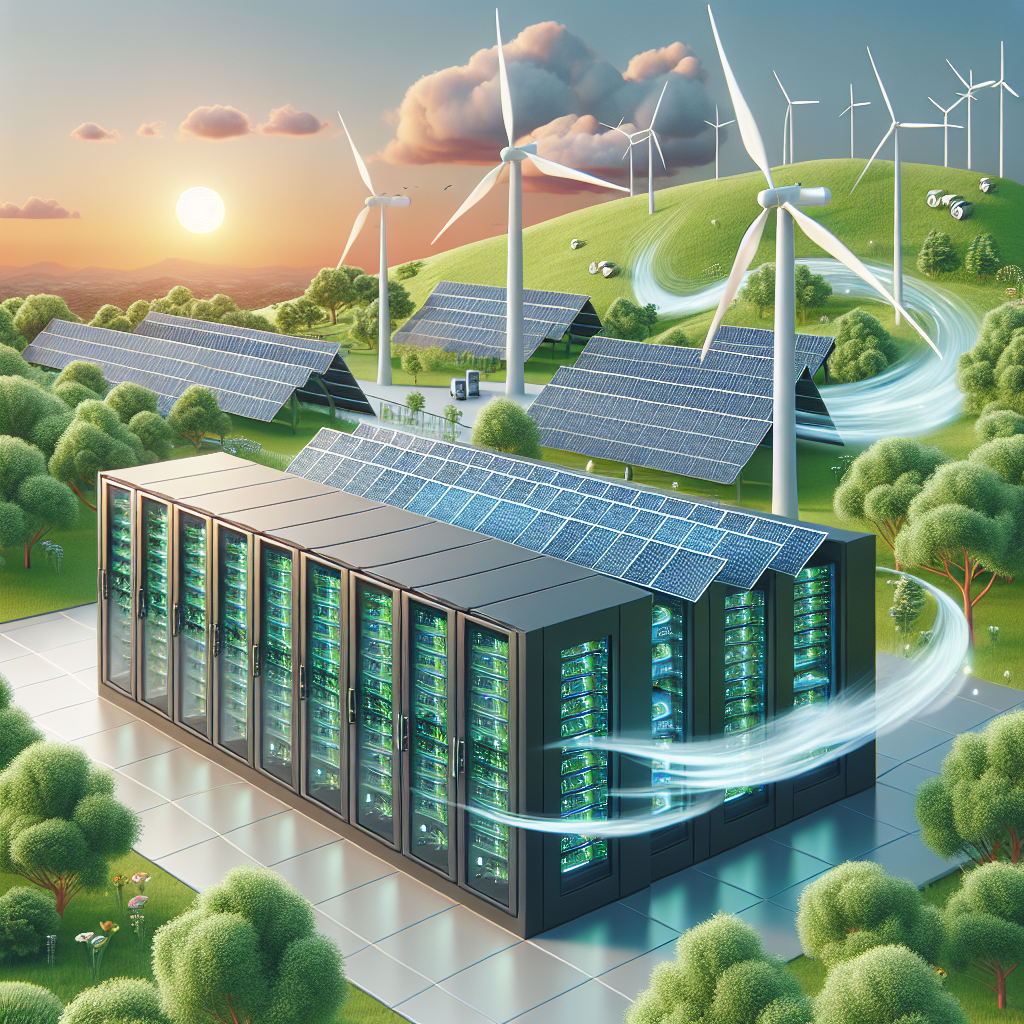In today’s technology-driven world, data centers play a crucial role in storing, processing, and transmitting data for businesses and individuals alike. However, the rapid growth of data centers has raised concerns about their impact on the environment, particularly in terms of energy consumption and carbon emissions. Thankfully, many data centers are now focusing on increasing efficiency to reduce their environmental footprint.
One of the key ways that data centers are reducing their energy consumption is through the use of advanced cooling systems. Data centers generate a significant amount of heat due to the large number of servers and equipment they house. Traditional air conditioning systems were not only energy-intensive but also inefficient in maintaining optimal temperatures. Many data centers are now adopting innovative cooling technologies, such as liquid cooling and hot aisle/cold aisle containment, which can significantly reduce energy usage and lower cooling costs.
Another important aspect of efficiency in data centers is the optimization of server utilization. In the past, servers were often underutilized, running at low capacity even during peak times. By implementing virtualization and consolidation techniques, data centers can maximize server utilization, reduce the number of physical servers needed, and ultimately lower energy consumption. Additionally, data centers are investing in energy-efficient hardware and equipment, such as solid-state drives and energy-efficient processors, to further reduce their energy usage.
Furthermore, data centers are increasingly turning to renewable energy sources to power their operations. Many data centers are now sourcing electricity from solar, wind, and hydroelectric power, reducing their reliance on fossil fuels and lowering their carbon footprint. Additionally, some data centers are investing in energy storage solutions, such as batteries and flywheels, to store excess renewable energy and use it during peak demand periods.
In addition to reducing energy consumption, data centers are also focusing on improving their overall environmental impact. Many data centers are implementing sustainable practices, such as recycling e-waste, using energy-efficient lighting, and reducing water consumption. Some data centers are even pursuing green building certifications, such as LEED (Leadership in Energy and Environmental Design), to demonstrate their commitment to sustainability.
Overall, the power of efficiency in data centers is not only reducing energy consumption but also mitigating their environmental impact. By adopting advanced cooling systems, optimizing server utilization, and investing in renewable energy sources, data centers are leading the way in creating a more sustainable and eco-friendly future. As the demand for data continues to grow, it is crucial that data centers continue to prioritize efficiency and sustainability to minimize their environmental footprint.


Leave a Reply